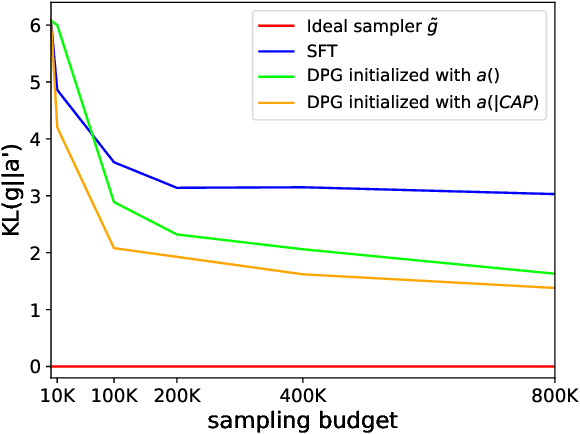Guaranteed Generation from Large Language Models
Paper and Code
Oct 09, 2024



As large language models (LLMs) are increasingly used across various applications, there is a growing need to control text generation to satisfy specific constraints or requirements. This raises a crucial question: Is it possible to guarantee strict constraint satisfaction in generated outputs while preserving the distribution of the original model as much as possible? We first define the ideal distribution - the one closest to the original model, which also always satisfies the expressed constraint - as the ultimate goal of guaranteed generation. We then state a fundamental limitation, namely that it is impossible to reach that goal through autoregressive training alone. This motivates the necessity of combining training-time and inference-time methods to enforce such guarantees. Based on this insight, we propose GUARD, a simple yet effective approach that combines an autoregressive proposal distribution with rejection sampling. Through GUARD's theoretical properties, we show how controlling the KL divergence between a specific proposal and the target ideal distribution simultaneously optimizes inference speed and distributional closeness. To validate these theoretical concepts, we conduct extensive experiments on two text generation settings with hard-to-satisfy constraints: a lexical constraint scenario and a sentiment reversal scenario. These experiments show that GUARD achieves perfect constraint satisfaction while almost preserving the ideal distribution with highly improved inference efficiency. GUARD provides a principled approach to enforcing strict guarantees for LLMs without compromising their generative capabilities.
 Add to Chrome
Add to Chrome Add to Firefox
Add to Firefox Add to Edge
Add to Edge